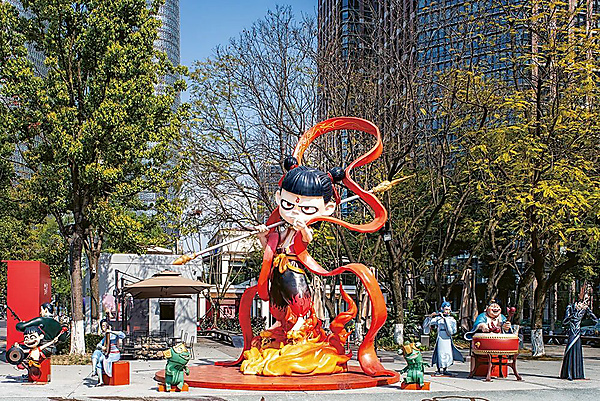 |
| Sculptures, related to the film Ne Zha 2, in Chengdu, capital of southwest China's Sichuan Province |
The animated film, Ne Zha 2, became a blockbuster this year. Its soaring box-office receipts became a vivid showcase of the innovative vitality, charm and strength of Chinese culture. The film not only took the world by storm, it also ignited a travel craze among fans, who were eager to explore locations associated with the film and its mythological roots. Regions like Jiangyou and Yibin, both in southwest China's Sichuan Province, are deeply intertwined with the legend of Ne Zha. Women of China English Monthly invites readers to follow Ne Zha's footsteps, to explore Sichuan and to decipher the enduring vitality of Chinese culture through some of the province's landscapes.
Chentang Pass: Ne Zha's Birthplace
Chentang Pass was an important pass during the Shang Dynasty (1600-1046 BC). In the film, Chentang Pass is where Ne Zha was born and raised, and where Ne Zha famously declared, "I am the master of my destiny!" The pass is now located in Wudu, a town in Jiangyou, a city in Sichuan. It is known for its striking beauty, and for its ancient military significance.
Wudu's landscapes mirror the scenes in the film. As reported in Jiangyou County Chronicles, "Chentang Pass, also known as Gaotang Temple, overlooks the city with steep peaks."
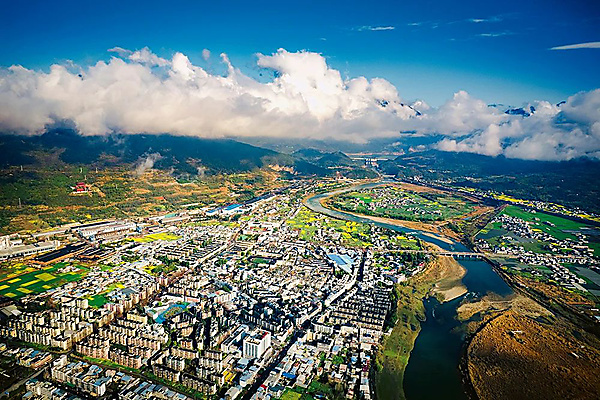 |
Wudu Town |
Nanguang River flows through Wudu. According to The Legend of Ne Zha, the river is where Ne Zha conquered the Dragon King. The stone ridge on the river bed is said to be the dragon's tendon, which Ne Zha extracted when he subdued the evil dragon.
Wudu's cobblestone streets, wooden buildings and ancient walls exude timeless charm. Visitors strolling through the town can savor Jiangyou's signature pork intestines, a dish Ne Zha supposedly loved.
Qianyuan Mountain: Embracing the Spirit of Heaven, Earth
Qianyuan Mountain is located in western Jiangyou. In the film, this mist-shrouded paradise is where Taiyi Zhenren cultivates and trains Ne Zha. The mountain, a sacred site of Taoism, inspired myths, such as Investiture of the Gods and The Legend of Ne Zha.
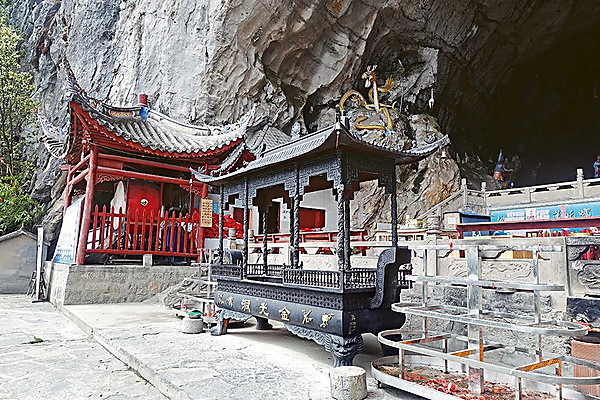 |
Golden Light Cave in Qianyuan Mountain |
Qianyuan's Golden Light Cave and Silver Light Cave are mystical wonders. Inside Golden Light Cave, Taoist stone carvings, from the Song (960-1279) and Yuan (1206-1368) dynasties, stand solemnly under the dim lighting. According to legend, Golden Light Cave is where Ne Zha was reborn as a lotusroot man, and the cave is the symbolic point where he broke free from the shackles of the physical body and began to pursue his free will. A golden statue of Ne Zha now stands at the entrance of the cave to welcome visitors. People light candles and incense as they pay their respects to the boy warrior.
Yibin: 'Ne Zha Is Our Child'
In the film, Taiyi Zhenren gathers lotus roots to rebuild Ne Zha's body. The lotus roots were gathered in Tianchi Park, in Yibin, a city in Sichuan. The park contains various flowers and trees, which offer different floral displays throughout the year. The Ne Zha Resurrection Pavilion, surrounded by lotus ponds, is located in the park. In the pavilion, Ne Zha mastered his three-headed and six-armed skills, in step with the pavilion's couplet: "Vanquishing evil without hesitation; reborn with renewed spirit."
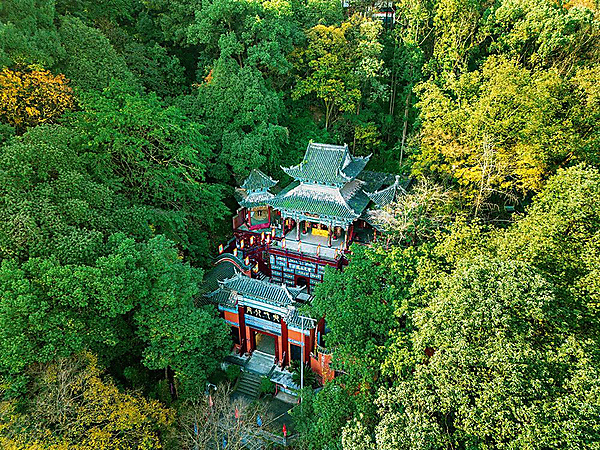 |
Ne Zha Palace |
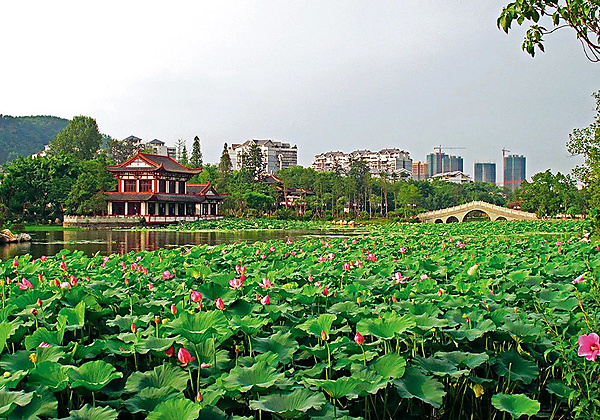 |
Tianchi Park |
Cuiping Mountain, at the western edge of Yibin, is a famous urban-forest park. Nestled in this picturesque and lushly wooded area is Ne Zha Palace, considered the ancestral temple of Ne Zha. Ne Zha Palace, which is halfway up Cuiping Mountain, covers approximately 2,200 square meters. The palace was built to fit the mountain's terrain, and it consists of three parts: Mountain Gate, Prince Hall and Ne Zha Cave. In 2019, Cuiping District People's Government of Yibin received the title, "Hometown of Ne Zha Culture," from the China Folk Literature and Art Association. Yibin locals have proudly declared, "Ne Zha is our child!" Yibin's landscapes and culture have nurtured stories about Ne Zha for generations, and they have helped create a unique cultural tapestry.
The film, Ne Zha 2, has, once again, showcased Sichuan's charm to the world. As Ne Zha declares in the film, "If there's no path ahead, I'll carve one myself." It is not only Ne Zha's oath, but also a manifesto of China's cultural inheritance and confidence — traditional culture is far from dormant; it is forging new legends in Sichuan, the Land of Abundance, through innovation.
Photos from VCG and Tuchong
(Women of China English Monthly May 2025)
Editor: Wang Shasha